Travel Trends
Bleisure Travel: The Rising Trend Shaping the Future of Business and Leisure Travel
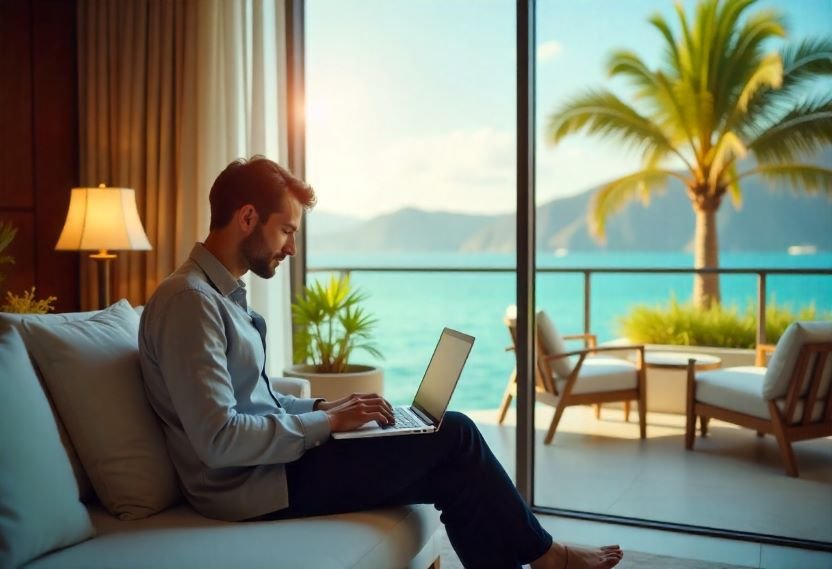
Friday, August 1, 2025
As the lines between work and personal life continue to blur, the rise of bleisure travel has emerged as one of the most prominent trends in the modern travel industry. Combining business and leisure, bleisure allows professionals to extend their work trips for personal exploration, relaxation, and recreation. This blend of business efficiency and leisure opportunities is reshaping how travelers, especially those in the corporate world, approach travel.
The trend has gained significant momentum, with many companies recognizing the advantages of allowing employees to combine work with leisure activities. The rise of remote work, flexible schedules, and an increased focus on work-life balance have all contributed to the rapid expansion of this hybrid travel model. For travelers, it’s a unique opportunity to experience new destinations while fulfilling professional responsibilities.
What is Bleisure Travel?
Bleisure travel refers to the practice of combining business travel with leisure activities. Typically, a business traveler will extend their work trip for a few extra days to explore the destination or enjoy personal time after fulfilling professional commitments. This practice benefits both employees and employers, providing an opportunity to maximize travel without sacrificing personal time or work commitments.
As companies continue to embrace flexible working arrangements and remote work policies, bleisure has evolved into an essential part of the global travel landscape. Rather than simply attending meetings or conferences, bleisure travelers can enjoy the benefits of the destination, turning business trips into a more balanced and fulfilling experience.
The Growth of the Bleisure Travel Market
The bleisure market has been expanding rapidly and is expected to continue to grow. According to recent studies, the global bleisure travel market was valued at $685.20 billion in 2024 and is projected to reach $1.71 trillion by 2032, with a CAGR of 12.27% .
Factors contributing to this growth include:
- Work-Life Balance Trends: Professionals are increasingly seeking a blend of work and relaxation. The flexibility to work remotely from anywhere has contributed to the rise of bleisure travel .
- Increased Connectivity: With the rise of digital tools, it’s easier than ever for professionals to stay connected while traveling for leisure .
- Corporate Support: Many companies now encourage their employees to extend business trips for personal time, recognizing the positive impact on employee well-being and productivity .
Regional Insights: Where is Bleisure Most Popular?
While bleisure is growing worldwide, certain regions are leading the charge in promoting it:
- United States: The U.S. remains a key destination for bleisure travelers due to its strong corporate culture, high number of business events, and diverse leisure opportunities .
- Europe: European countries, such as Spain, France, and Germany, have become popular bleisure hubs. The continent’s easy accessibility, rich cultural experiences, and strong transportation networks make it an ideal destination for business travelers extending their trips .
- Middle East: The UAE, especially Dubai, has seen an increase in bleisure travelers, offering a mix of business conventions, luxury hotels, and unique cultural experiences . Saudi Arabia is also focusing on developing its tourism sector to attract business travelers .
- Asia: Countries like India and Thailand are increasingly becoming attractive bleisure destinations, thanks to their growing infrastructure and appeal to business professionals .
The Role of Technology in Bleisure Travel
Advancements in technology have played a significant role in the growth of bleisure travel. Digital platforms have made it easier for travelers to balance both business and leisure activities. Whether it’s finding suitable accommodation or booking an activity for personal enjoyment, the integration of work and leisure through apps, online platforms, and work-friendly environments has made it more convenient for business travelers to extend their trips .
Additionally, companies like Emirates and IHG Hotels & Resorts are responding to this trend with tailored programs for SME (small and medium enterprise) travelers, offering exclusive benefits such as discounts, loyalty rewards, and flexible booking options . These initiatives are designed to meet the needs of bleisure travelers who are balancing business obligations with personal time.
Benefits for Travelers and the Travel Industry
For travelers, bleisure offers several advantages:
- Work-Life Balance: Combining business with leisure allows employees to unwind while still fulfilling their professional responsibilities. This leads to better productivity and job satisfaction .
- Cost Efficiency: By extending business trips into leisure time, travelers can reduce the cost of vacations. Companies also benefit from reduced travel expenses by combining multiple travel purposes into a single trip .
- Improved Mental Health: The ability to relax and enjoy personal time after work commitments helps mitigate stress and promotes overall well-being .
For the travel industry, bleisure is a growing market that can provide new revenue streams. Airlines and hotel chains are adjusting their offerings to cater to bleisure travelers by providing:
- Flexible booking options for extended stays.
- Co-working spaces in hotels.
- Customized packages that allow business travelers to seamlessly combine work and play .
Challenges and Opportunities in Bleisure Travel
While bleisure travel offers many benefits, it is not without its challenges. Some common concerns include:
- Work-Life Boundaries: As the trend grows, professionals might struggle to disconnect fully from work, leading to burnout .
- Destination Accessibility: Ensuring that business destinations also offer leisure opportunities is essential for encouraging bleisure travel .
Despite these challenges, the opportunities in this market are immense. Travel destinations are increasingly offering tailored services, while companies continue to refine their policies to support bleisure. As the demand for work-leisure travel grows, the future of bleisure is bright, offering exciting possibilities for both travelers and the travel industry as a whole .
Conclusion: The Future of Bleisure Travel
Bleisure travel is transforming the way we think about business trips, making travel more flexible, enjoyable, and balanced. With increasing support from corporations and destinations, this trend is only set to grow. As more professionals seek to combine business with leisure, destinations, airlines, and hotel chains will need to continue evolving to meet the demand for seamless, enjoyable travel experiences. The future of travel lies in the balance of work and relaxation—an exciting prospect for travelers and the entire travel industry.
Travel Trends
Top 35 Travel Trends in August
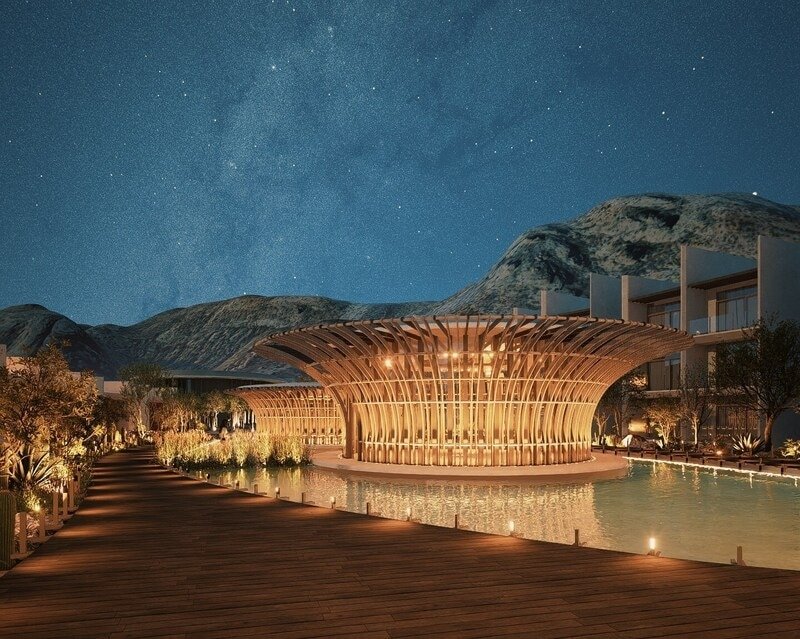
At the forefront of digital innovation, Mindtrip debuts a new AI-powered mobile app, offering real-time, hyper-personalized travel guidance that adapts to users on the go. United Airlines also upgraded its app with a connecting flight-centric feature, simplifying complicated itineraries for smoother travel. Meanwhile, the luxury sector is expanding with a renewed focus on wellbeing. Marriott International’s Luxury Group launched its ‘Luxury Wellbeing Series 2025’ across top Asian destinations, while Loreto’s Mailena, debuting in late summer 2026, introduces a restorative adults-only retreat to Mexico’s Baja Peninsula.
Nostalgia is trending, too as ‘Pan Am Journeys’ by Private Air, under license from the iconic Pan American World Airways, offers retro-inspired, private air travel experiences. Similarly, Carl Friedrik’s ‘Carry-on X Core Collection’ nods to mid-century aviation aesthetics with sleek, functional design. On the water, Viking makes waves by entering the Indian river cruise market with the introduction of the ‘Viking Brahmaputra,’ bringing high-end cruising to the subcontinent. Nox, looking to the future of European rail travel, announces plans for 2027 overnight trains with private, comfort-first cabins—reshaping the night train experience.
On the lifestyle side, Four Seasons adds flair with its ‘Resort Pajamas Collection,’ while Groupe GM and Hei Poa debut a soothing, protective sun care hotel amenity line. Additionally, ‘The Cayman Club’ by Cayman Jack provides travelers with a sense of calm amid travel disruptions, and ‘Camp Unwritten’ by World of Hyatt and Reese’s Book Club invites guests to glamp with books, nature, and luxury.
Altogether, August’s travel trends reflect a traveler mindset increasingly shaped by individuality, relaxation, and meaningful escape—one that seeks not just destinations, but immersive, personal journeys.
Travel Trends
Nepal’s Royal Tulip opens Doors
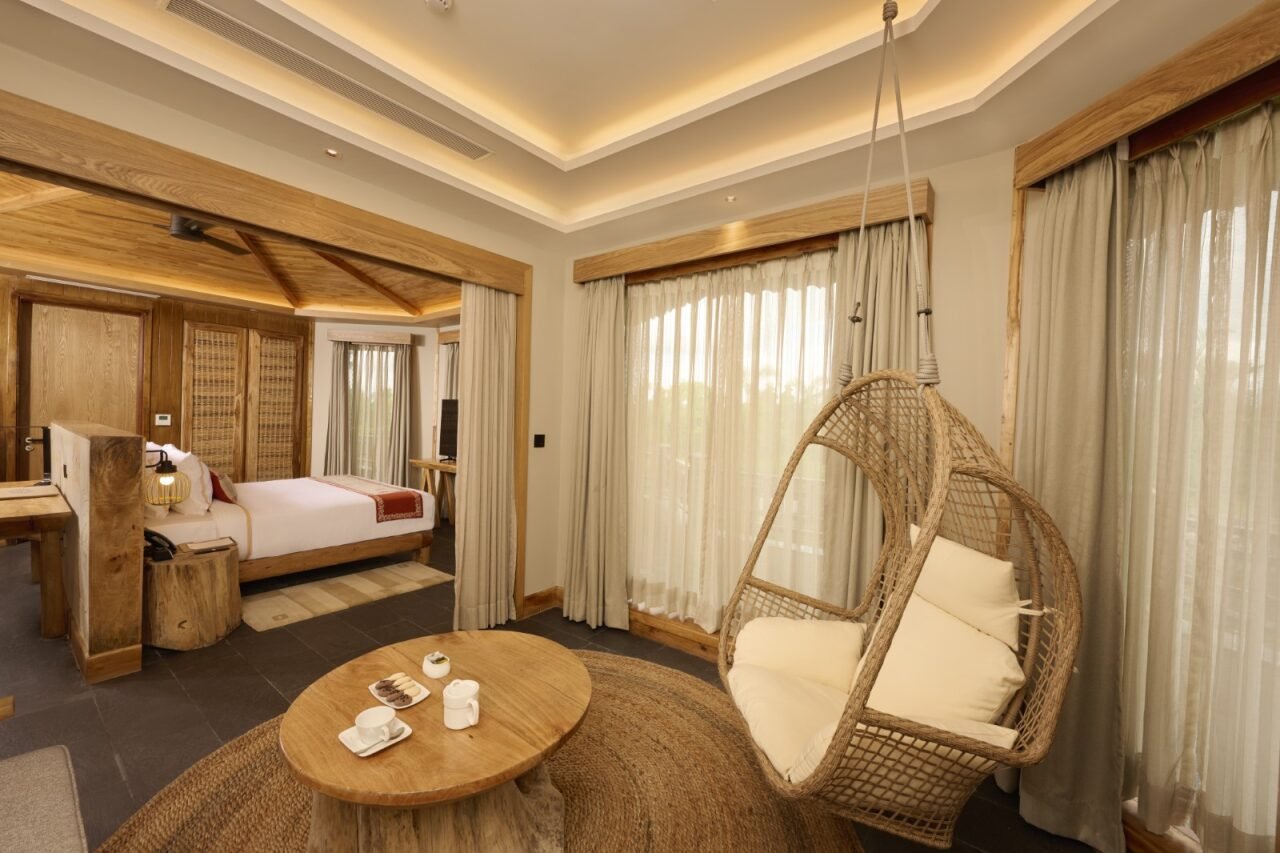
In a major push to elevate Nepal’s hospitality landscape, Sarovar Hotels—part of the Louvre Hotels Group—has launched Royal Tulip Chitwan, the brand’s premium entry into the country. Situated at the edge of Chitwan National Park, a UNESCO World Heritage Site, the new resort seamlessly blends luxury, nature, and Nepali culture. The opening marks the debut of the Royal Tulip brand in Nepal and signals growing confidence in the country’s tourism potential.
Developed by KTM Hospitality (a KTM Group Holdings company), the resort spans over 4 acres and offers 65 upscale rooms and villas. Accommodation options include private Pool Villas, serene Water Villas, and unique Machan-style stays that elevate the guest experience. With a focus on nature-inspired design and top-tier comfort, the resort is positioned as an ideal destination for luxury travellers, wildlife enthusiasts, and honeymooners alike.
Royal Tulip Chitwan goes beyond just accommodation, offering world-class facilities like a luxury spa, fitness centre, swimming pool, and multiple gourmet dining options. Guests can enjoy meals at Majhighar, Forest Flame, the revolving deck Machan, or unwind at the stylish Tanavi Sports Bar. The emphasis is on immersive experiences rooted in local culture and cuisine, combined with global service standards.
Ajay K. Bakaya, Chairman of Sarovar Hotels, emphasised the strategic significance of this launch, noting Nepal’s increasing appeal among Indian and international tourists. He stated that Royal Tulip Chitwan is designed to offer a luxurious yet culturally authentic retreat. Rameshwar Shah of KTM Hospitality echoed this sentiment, highlighting the resort’s role in promoting Chitwan as a luxury eco-tourism hotspot.
With this debut, Louvre Hotels Group is expanding its South Asian footprint by targeting high-potential, experience-driven markets. Royal Tulip Chitwan is expected to become a landmark for leisure travel in Nepal, attracting guests seeking a tranquil yet luxurious escape surrounded by nature and culture.
Travel Trends
Wyndham expands in Wayanad Hills
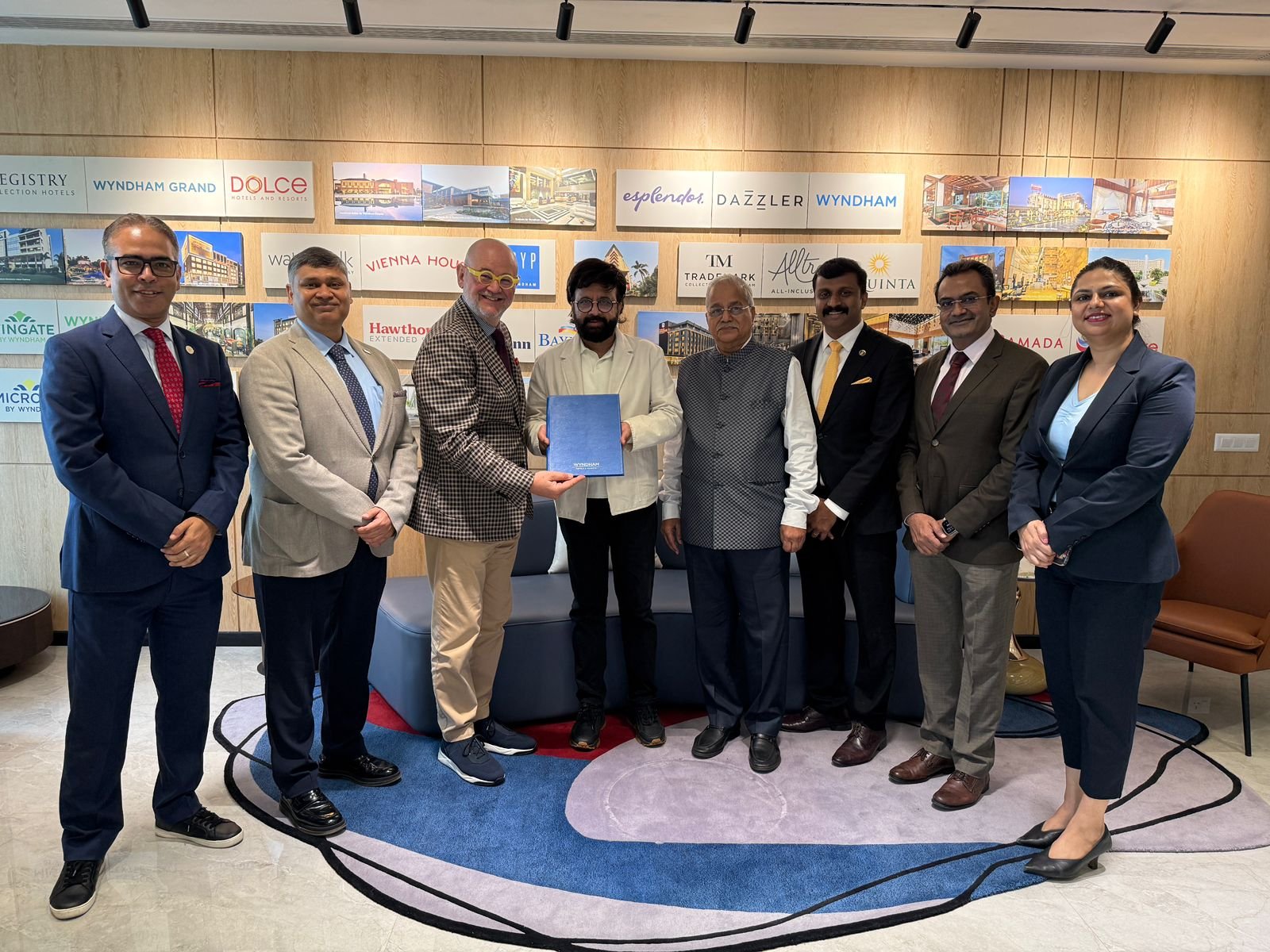
Wyndham Hotels & Resorts is strengthening its footprint in South India with the upcoming Ramada by Wyndham Wayanad Vythiri, a 52-room upscale hotel scheduled to open in 2026. Nestled in the lush greenery of Vythiri, this property is being developed by local entrepreneur Asok Thirikkoth. The hotel is poised to cater to a growing wave of both domestic and international travellers seeking wellness and nature-driven escapes.
The hotel will feature modern amenities, including a full-service spa, all-day dining, meeting and event spaces, and rooms designed for both leisure and business needs. This launch is expected to enhance the hospitality landscape of Wayanad, a region gaining popularity for eco-tourism and holistic wellness offerings.
Asok Thirikkoth emphasised that the Ramada brand’s arrival aligns with the vision to elevate local tourism. Wyndham’s Rahool Macarius also highlighted Wayanad’s potential as a high-demand destination for eco-conscious travelers, signaling the brand’s long-term commitment to Tier-2 markets.
With over 9,300 hotels globally, Wyndham’s strategic expansion in India continues, reflecting its focus on emerging leisure destinations and robust regional collaborations that prioritise sustainable growth and premium guest experiences.
-

 Brand Stories2 weeks ago
Brand Stories2 weeks agoBloom Hotels: A Modern Vision of Hospitality Redefining Travel
-

 Brand Stories1 week ago
Brand Stories1 week agoCheQin.ai sets a new standard for hotel booking with its AI capabilities: empowering travellers to bargain, choose the best, and book with clarity.
-

 Destinations & Things To Do2 weeks ago
Destinations & Things To Do2 weeks agoUntouched Destinations: Stunning Hidden Gems You Must Visit
-

 Destinations & Things To Do1 week ago
Destinations & Things To Do1 week agoThis Hidden Beach in India Glows at Night-But Only in One Secret Season
-

 AI in Travel2 weeks ago
AI in Travel2 weeks agoAI Travel Revolution: Must-Have Guide to the Best Experience
-

 Brand Stories4 weeks ago
Brand Stories4 weeks agoVoice AI Startup ElevenLabs Plans to Add Hubs Around the World
-

 Brand Stories3 weeks ago
Brand Stories3 weeks agoHow Elon Musk’s rogue Grok chatbot became a cautionary AI tale
-

 Asia Travel Pulse4 weeks ago
Asia Travel Pulse4 weeks agoLooking For Adventure In Asia? Here Are 7 Epic Destinations You Need To Experience At Least Once – Zee News
-

 AI in Travel4 weeks ago
AI in Travel4 weeks ago‘Will AI take my job?’ A trip to a Beijing fortune-telling bar to see what lies ahead | China
-

 Brand Stories4 weeks ago
Brand Stories4 weeks agoChatGPT — the last of the great romantics








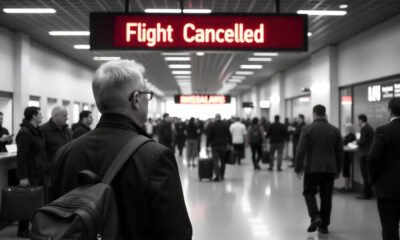



You must be logged in to post a comment Login